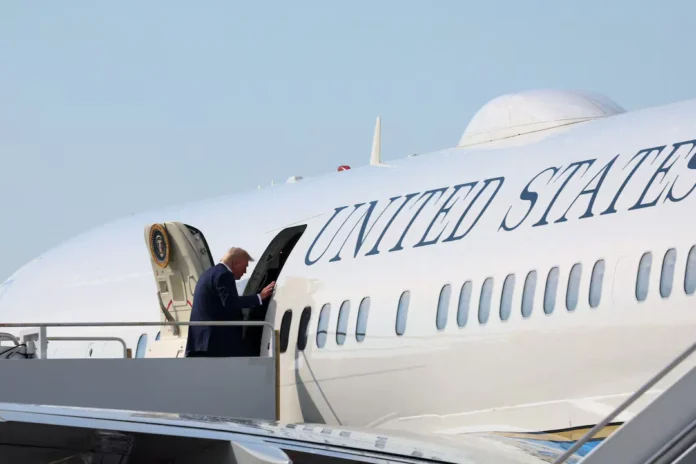President Donald Trump is preparing for his second official state visit to the United Kingdom, scheduled from September 16–18, 2025. The trip is expected to combine high-profile ceremonial events with serious political and economic discussions, particularly surrounding the possibility of a new U.S.–UK trade agreement.
A Historic Second State Visit
Very few U.S. presidents have been granted multiple state visits to the UK, a distinction usually reserved for moments of major diplomatic significance. Trump’s return underscores the evolving relationship between Washington and London as both nations grapple with shifting global power dynamics.
According to White House officials, the three-day visit will include:
- Meetings with Prime Minister Keir Starmer at 10 Downing Street.
- A formal ceremony at Windsor Castle, hosted by King Charles III.
- High-level talks focused on trade, defense cooperation, and transatlantic diplomacy.
Trade Deal Discussions on the Table
One of the most closely watched aspects of the visit is the discussion of a potential U.S.–UK trade deal. Both Trump and Prime Minister Starmer are under pressure to strengthen economic ties amid global uncertainty and ongoing competition with China.
While no agreement has been finalized, officials from both governments have hinted at significant progress. A Whitehall source suggested that “exploratory frameworks” for trade in technology, energy, and financial services are already being reviewed.
The White House, however, has been cautious. “President Trump is committed to ensuring any trade deal benefits American workers first,” said a senior administration official.
For more details on the broader trade landscape, Reuters has reported that the U.S. is also exploring new tariffs on certain European imports, which could play into the UK negotiations.
The Symbolism of Windsor Castle
Beyond policy, optics matter. The visit to Windsor Castle will feature ceremonial pomp, a reminder of the enduring “special relationship” between the two nations.
Royal watchers expect King Charles III to host a state banquet, similar to the one held during Trump’s first visit. Such events are steeped in tradition, often used to reinforce diplomatic goodwill even when political differences persist.
According to The Guardian, Buckingham Palace officials are carefully curating the event to highlight shared history, culture, and resilience between the U.S. and the UK.
Political Reactions in London and Washington
The announcement of Trump’s visit has sparked mixed reactions. Supporters in the Conservative Party argue it presents an opportunity to secure meaningful economic partnerships. Labour critics, however, caution against placing too much emphasis on Trump, pointing to his unpredictable negotiating style.
In Washington, Republican lawmakers see the visit as a diplomatic win that could boost Trump’s foreign policy credentials. Democrats, meanwhile, have urged closer scrutiny of any trade commitments, warning of potential consequences for labor and environmental protections.
What This Means for U.S.–UK Relations
Political analysts believe this state visit could set the tone for the next phase of U.S.–UK relations. With challenges such as Russia’s aggression in Eastern Europe, global energy instability, and shifting alliances in Asia, both nations are eager to reaffirm their partnership on the world stage.
At the same time, the emphasis on trade underscores the economic realities driving modern diplomacy. If Trump and Starmer can outline a credible path forward, the visit may prove to be more than symbolic—it could mark a turning point in transatlantic cooperation.





He deserves it 🤎